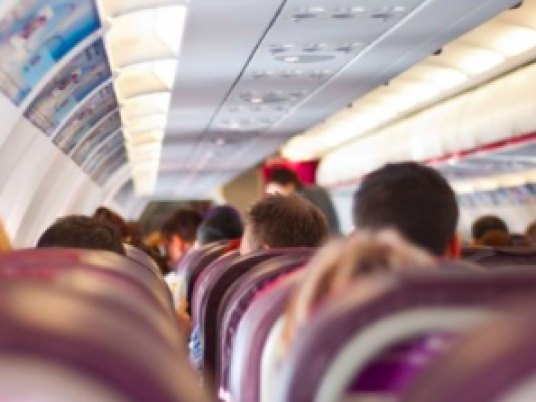
Air passenger numbers worldwide are likely to reach seven billion per year within the next two decades, twice what they are now, IATA said yesterday.
The International Air Transport Association said this was 400 million fewer than forecast previously because of a global economic slowdown, notably in China.
IATA said it now expects air passenger numbers to grow 3.8 percent on average each year through 2034, taking the annual figure to double from the 3.5 billion expected this year.
The Geneva-based organisation had previously forecast 4.1 percent annual growth in passenger numbers, but said political changes and "negative developments in the global economy" were expected to dampen demand for air transport.
"Economic and political events over the last year have impacted some of the fundamentals for growth," IATA chief Tony Tyler explained in a statement.
"As a result, we expect some 400 million fewer people to be travelling in 2034 than we did at this time last year," he said, pointing out that "air transport is a critical part of the global economy, (and) policy-makers should take note of its sensitivity."
In particular, the slow-down in the Chinese economy is impacting global passenger growth outlook.
The country is today the world's fastest-increasing market in terms of additional annual passengers, and is forecast to add 758 million new passengers by 2034 to bring the total to 1.196 billion each year.
The United States is the second fastest-increasing market, with 523 million new annual passengers expected by 2034 for a total of 1.156 billion, followed by India, Indonesia and Brazil.
China is expected to overtake the United States as the world's largest passenger market (defined by traffic to, from and within) by 2029, IATA said.
Although China is not adding new passengers as quickly as previously projected, it has so far this year seen its annual passenger numbers shoot up 12.5 percent.
And it is on course to add 230 million additional passenger journeys between 2014 and 2019, IATA said.
India meanwhile has bounced back from a subdued 2014 with 16.5 percent passenger growth so far this year.
Brazil and Russia by contrast are struggling, hit by falling oil and other commodity prices, IATA said, also pointing to the economic sanctions against Russia and sky-high fuel charges in Brazil
In percentage terms, seven of the 10 fastest-growing markets will meanwhile be in Africa, the organisation said, joined by Serbia, Papua New Guinea and Vietnam, with each expected to see passenger numbers swell 7% to 8% each year over the next 20 years and doubling in size each decade.
IATA also said the prospect of more open travel between the rest of the world and Cuba and Iran as economic sanctions against them are gradually expected to be lifted offers "exciting possibilities."
In 20 years, aviation is expected to sustain 105 million jobs, up from 58 million today, and contribute US$6 trillion to the global economy.

